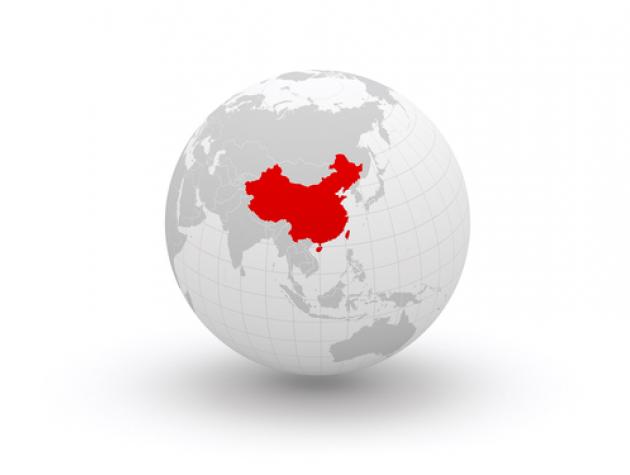Dr Fuzuo Wu, GLF 2012-14
Fuzuo Wu was a Fellow under the Oxford-Princeton Global Leaders Programme 2012-14. She is an Assistant Professor at Aalborg University, Denmark. Her book Energy and Climate Policies in China and India: A Two-Level Comparative Study was published by Cambridge University Press, UK in August 2018. Her current research areas include Chinese foreign policy, climate change politics, and Sino-Indian relations.
Publications
Books
Wu, Fuzuo, 2018. Energy and Climate Policies in China and India: A Two-Level Comparative Study. Cambridge University Press, UK.
Wu, Fuzuo, 2010. Yazhou Nengyuan Xiaofeiguo jian de Nengyuan Jingzheng yu Hezuo: Yizhong Boyi de Fenxi (Energy Cooperation and Competition among Asian Energy Consuming Countries: A Game Theory Analysis). Shanghai: Shanghai People’s Publishing House.
Articles
Wu Fuzuo. 2015. "China's Responses to External Pressures on its WMD-related Exports after 2004: reactive and proactive." Journal of Contemporary China 24 (93): 511-30.
Wu Fuzuo. 2013. “China’s Pragmatic Tactics in International Climate Change Negotiations: Reserving Principles with Compromise.” Asian Survey, Vol 53 No 4.
Wu Fuzuo. 2012. “Sino-Indian Climate Cooperation: Implications for the International Climate Change Regime.” Journal of Contemporary China 21(77).
Wu Fuzuo. 2010. “China’s Energy Diplomacy and International Responsibility: A Case Study of Darfur.”Arab World Studies: 59-66.
Wu Fuzuo. 2010. “Comment on Singh Government’s Pragmatic Diplomacy in India.” South Asian Studies Quarterly 140 (1): 28-33.
Wu Fuzuo. 2009. “The US Influence on India’s Energy Security.” South Asian Studies Quarterly 136 (1): 8-12. [Re-printed in International Politics, one of a series of academic journals published by Information Center for Social Sciences at People’s University of China, exclusively devoted to reprinting papers on other Chinese academic journals, No.7, July 2009: 55-59.]
Wu Fuzuo. 2009. “Mercantilism or Liberalism? An Initial Analysis of the Debate among Western Academic Circle on China’s Energy Diplomacy.” International Forum 62 (2): 38-43.
Wu Fuzuo. 2008. “China Factor in Japan-Indian Relations in the New Century.” Peace and Development104(2): 66-68.
Wu Fuzuo. 2008. “Central Asia in Japan’s Energy Strategy.” Forum of World Economic & Politics 270 (5):59-53.
Wu Fuzuo. 2008. “An Analysis of Relations and Games in Energy Development between China and India.”South Asian Studies Quarterly 134 (3): 55-60.
Wu Fuzuo. 2006. “Threat or Integration? — An Initial Analysis of Western Academic Circle’s Debate on the Impact of China’s Energy Security.” International Forum 47 (5): 52-56.
Wu Fuzuo. 2006. “Energy Security: A Shared Problem faced by both China and India.” South Asian Studies Quarterly 125(2): 47-53.
Wu Fuzuo. 2005. “The Structural Realist Explanation of Sino-Japan Energy Competition and Cooperation.” International Forum 41(5): 45-49.
Wu Fuzuo. 2005. “Comment on the International Cooperation Behavior of Indian Government.” South Asian Studies Quarterly 125(4): 53-58.
Wu Fuzuo. 2005. “The Strategic Intentions in Indo-US Relations after the Iraqi War.” Jianghan Forum 82 (3): 21-22.
Wu Fuzuo. 2004. “India’s Non-alignment Option in the Cold War Scenario.” South Asian Studies Quarterly119(4): 56-62.
Wu Fuzuo. 2004. “Vajpayee's China Policy: A Pragmatic Approach.” South Asian Studies Quarterly 119(2): 43-48.
Wu Fuzuo. 2004. “More Practical Bilateral Relations: Indo-U.S. Relations after the Iraqi War.” South Asian Studies Quarterly 119(1): 55-59. [Re-printed in International Politics No.11, Nov. 2004: 75-78.]
Wu Fuzuo. 2003. “U.S.-Pakistan Alliance Restructured by Iraqi War.” South Asian Studies Quarterly119(4): 40-45.
Wu Fuzuo. 2003. “Indo-US Relations during the Korean War.” South Asian Studies Quarterly 118(3): 49-55.
Wu Fuzuo. 2003. “A Weak Alliance: America-Pakistan Relations after ‘9.11’ Event.” South Asian Studies Quarterly 118(2):31-36. [Re-printed in International Politics No.12, Dec. 2003: 67-71.]
Wu Fuzuo. 2003. “A Favorable Turn of US-Pakistan Relations in the Deadlock.” South Asian Studies Quarterly 118(1): 44-48.
Wu Fuzuo. 2002. “A Trial Analysis of Bush Administration's Approaches to Dealing with India-Pakistan Crisis.” South Asian Studies Quarterly 117(4): 39-44.
Wu Fuzuo. 2002. “A Trial Analysis of Impact of U.S. Fight against Terrorism on the Reconstruction of Indo-American Relations.” South Asian Studies Quarterly 117(3): 37-42.
Wu Fuzuo. 2002. “A Trial Analysis of Realistic factors of Clinton Administration's Policy towards India.”South Asian Studies Quarterly 117(2): 53-59.
Book Chapters
Wu Fuzuo. December 2011 forthcoming. “Pragmatic Compliance: China’s Policy toward Multilateral Export Control Regimes,” in Allen Carlson and Ren Xiao eds., New Frontiers in China’s Foreign Relations, New York: Lexington Books, pp.151-170.
Shen Dingli and Wu Fuzuo. 2008. “Sino-Indian Energy Relationship: A Game Theory Analysis,” in Shen Dingli and Ren Xiao eds., Geoeconomics and Politics in Asia, Shanghai: Shanghai People’s Publishing House, pp.120-138.
Wu Fuzuo and Shen Dingli. 2007. “Energy Development and Energy Security Cooperation in East Asia: Perspectives through China’s Law and Policies,” in Bo Yan ed., Environmental Issues and International Relations, Shanghai: Shanghai People’s Publishing House, pp.130-145.
Wu Fuzuo. 2007. “Autonomous Cooperation of Energy Game: Sino-Indian Energy Cooperation,” in Asia Research Center of Fudan University ed., Collected Papers on Asian Studies, Shanghai: Fudan University Press, pp.143-200.
Wu Fuzuo and Shen Dingli. 2006. “Energy Efficiency and Environmental Protection: The Basic Targets of China’s Energy Policy,” in Asia Research Center of Fudan University ed., Economic Globalization and Asia’s options, Shanghai: Fudan University Press, pp.135-139.
Wu Fuzuo and Wu Juanjuan. 2004. “The Development of Sino-Pakistani Friendship,” in Yan Jirui, ed.,Western Development of China and South Asia: Present and Prospects, Chengdu: Bashu Publishing House, pp.287-297.
Through the intensively theoretical and methodological trainings under the two-year GLF program, I am confident that I can not only finish writing my book manuscript but also greatly improve my capabilities to continue doing research on Sino-Indian development-related issues in general and those of the two countries’ energy security and climate change in particular.


